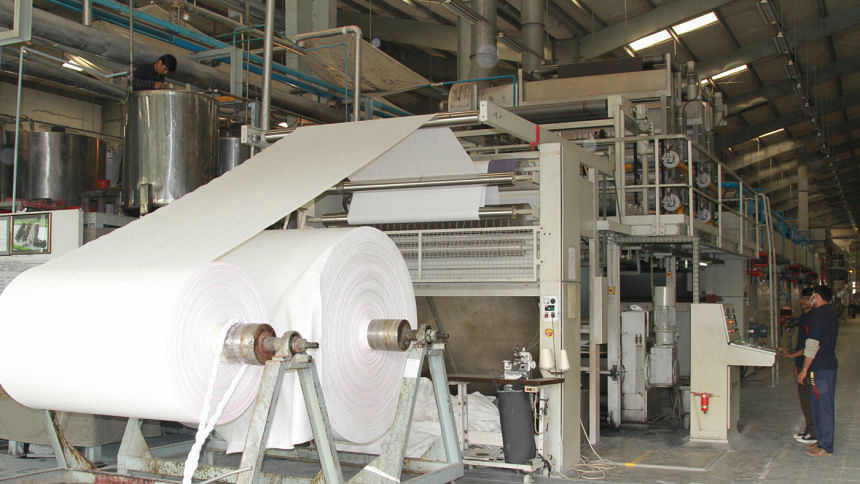Textile, garment makers urge govt to reconsider their demands

Textile millers and garment makers in Bangladesh yesterday demanded that the government include some of their recommendations in the new national budget as many of the issues they raised remain unaddressed.
For instance, garment exporters had demanded the reduction of source tax from the existing 1 percent to 0.5 percent for the upcoming fiscal year, which starts on July 1.
They also sought the continuation of cash incentives on export receipts until 2032 as the World Trade Organization (WTO) will allow graduating least-developed countries (LDCs) to enjoy trade benefits as LDCs till then.
As these demands were left unmet in the proposed budget for FY25, the textile millers and garment makers have asked the government to reconsider their recommendations on the grounds that such measures would improve businesses.
SM Mannan Kochi, president of the Bangladesh Garment Manufacturers and Exporters Association (BGMEA), said one of the proposed measures in the budget would allow customs officials to levy a 400 percent fine if an exporter is found using inaccurate documentation.
"Such a proposal will only increase the harassment of exporters for simply making a mistaking when filing documents for the export procedure," he added.
Kochi was speaking at a post-budget press conference jointly organised by the BGMEA, Bangladesh Textile Mills Association (BTMA) and Bangladesh Knitwear Manufacturers and Exporters Association (BKMEA) at the BGMEA office in Dhaka.
The BGMEA president also demanded food rationing for garment workers as persistently higher inflation has increased essential commodity prices in domestic markets.
He also suggested the government introduce a special scheme for both saving and fostering the growth of small and medium enterprises in the textile and garment sectors.
BKMEA Executive President Mohammad Hatem said although the government takes advanced income tax, the amount charged is often not returned as per the rules.
Besides, many textile and garment factories are facing serious difficulties due to a severe gas crisis.
BTMA President Mohammad Ali Khokon said there is an opportunity to bolster earnings from the 15 million kilogrammes of garment waste generated across the country each year as many global buyers want apparel made from recycled materials.
But the VAT on this type of product has been affecting the sector, he added, demanding the withdrawal of a 15 percent VAT on sales of garment waste and yarn.
Khokon also informed that the domestic primary textiles sector can typically supply $30 billion worth of raw materials to export-oriented garment makers every year.
However, their production has been suffering severely due to the ongoing gas and energy crises.
On the other hand, they welcomed the proposed rebates on imports of 17 textile products and the proposed reduction of the VAT Appellate Tribunal fee to 10 percent from 20 percent.
However, they also demanded the import duty on chillers be reduced to 1 percent from the proposed 10 percent. Previously, chillers faced an import duty of 104.68 percent.

 For all latest news, follow The Daily Star's Google News channel.
For all latest news, follow The Daily Star's Google News channel. 







Comments